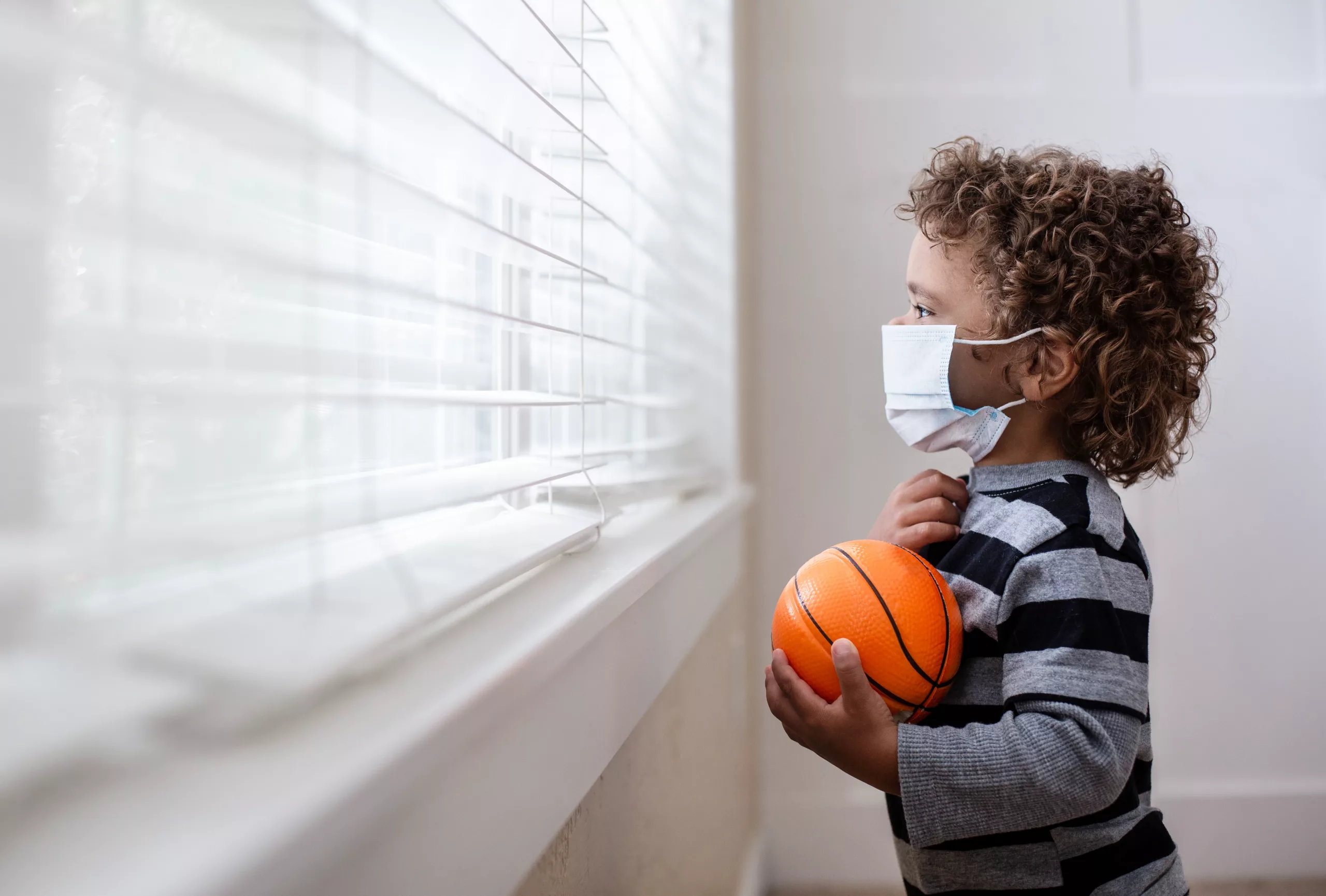The COVID-19 has turned the lives upside down around the whole world. Schools have closed for the remainder of the school year, restaurants, stores, and other businesses forced to close. Countless jobs and businesses lost, unable to recover from mandatory closures. Parents having to work from home, while often their children are having to do school work from home. Missed milestones, such as field day, field trips, award ceremonies, spring sports, last day of school, and traditional high school graduations.
Some of you probably start feeling anxiety just reading through this short list of the ways our lives have been altered. This amount of change and uncertainty in such a short period of time is enough to send all of us into a whirlwind of overwhelm and anxiety.
Adults are not the only ones who are feeling more anxious and overwhelmed than usual during this COVID-19 pandemic and social distancing measures. Mental health professionals and medical staff are seeing a rise in anxiety in children over the past 3 months.
Their worlds have been turned upside down, along with ours. So has their sense of safety and security, stability, and control. Kids of any age, much like adults, need to have a sense of control in their lives, so they are naturally going to feel more stress and anxiety during a time when no one around them has a solid grasp on what’s next.
So how do parents support their kids who are experiencing high stress and anxiety during the COVID-19 pandemic? Here are some tips:
- Awareness
Parents need to be aware of what anxiety looks like in their kids. It can look like stress or worry, but many kids show anxiety in other ways.
Young kids might be angry, extra clingy, irritable, or they may even withdraw and keep to themselves. Kids who are anxious and stressed might also ask lots of reassuring questions (Will Grandma be OK?), have tantrums or have trouble sleeping.
Kids aren’t always able to express how they are feeling so it will often show up in behavior. Knowing that it could be anxiety, and not simply bad behavior, could help open up communication for you and your child.
- Put your own oxygen mask on first, then help your child
If you are stressed out, you are not much help to your stressed-out child. Feelings of stress and anxiety will only escalate. Take care of yourself, limit media, breathe, get outside, and try to remain calm.
Our kids look to us as a model for how to handle things. They will feel the stress their parents feel. So, take care of yourself. You can’t pour from an empty cup!
- Be Flexible
It’s true that routine and predictability are important for a sense of safety and stability, but also be patient with yourself and your kids. You are all trying to adjust to an unknown and ever-changing set of circumstances and expectations, both with work and school. Our kids have lost connection with their teachers and their friends, they are not playing outside or at the park, spring sports were canceled.
Be flexible, allow time for the schedule to not be perfect. Most of all, acknowledge what they are feeling and validate that yes, this is a very hard time and that you are going to get through it together.
The truth is that there is no “right” way to manage all the challenges that come with a global pandemic. For most of us, it’s unlike anything we have ever experienced. Each family’s situation is unique. Give yourself some grace, learn together, and navigate uncertainty together.
Sometimes it may seem like the pandemic and social distancing is too much and too overwhelming. If your child is experiencing extreme symptoms of anxiety such as excessive crying, headaches or stomachaches that can’t be explained in other ways, or other symptoms that are disruptive to their daily functioning, seek the help of a therapist who can help!
Our therapists are highly skilled in working with children, adolescents, and families. We offer a diverse array of services to meet the needs of you and your family!
Let’s connect! Call us today to schedule an appointment.
940-222-8552 or email [email protected]
Teen Social Anxiety

